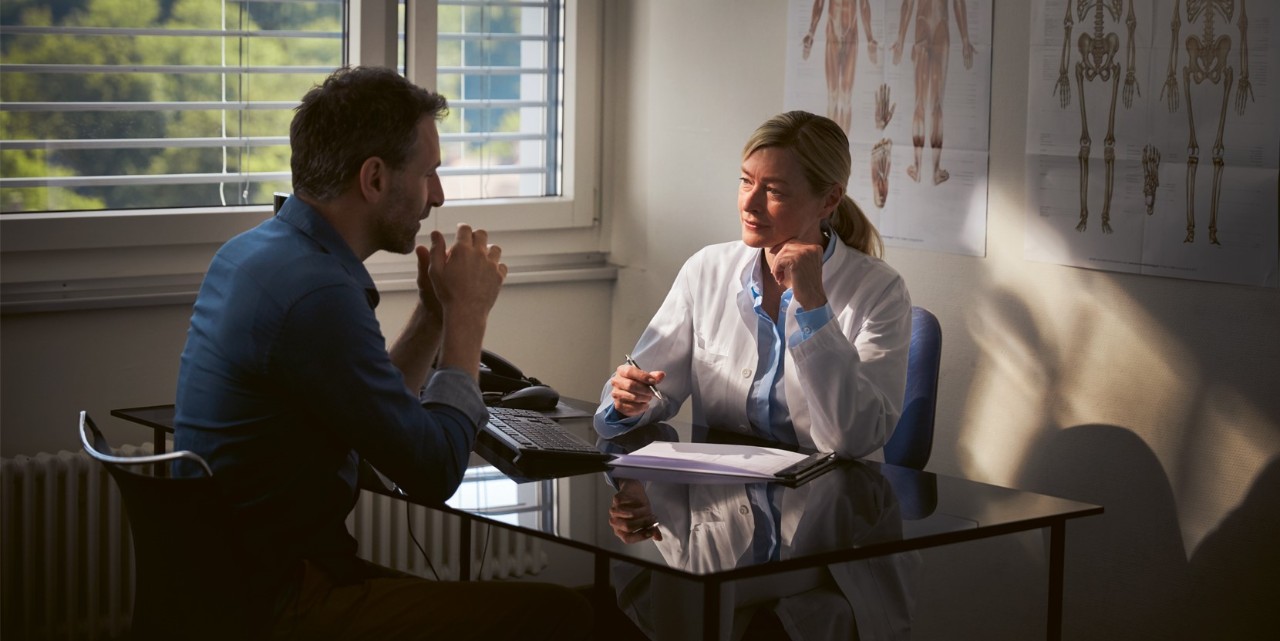Pros and cons of a second opinion
It’s not uncommon these days for patients to seek a second medical opinion, and they are fully entitled to do so. However, for all the times a second opinion provides clarity, there are some cases where it can also cause confusion.

We have all experienced the situation once in our life: You go to the doctor's office with health problems and go home with doubts in your mind. Did the family doctor take my stomach pains seriously? Is the laser therapy recommended by the ophthalmologist really necessary? Does the proposed cancer treatment have to be followed to the letter?
When it comes to our own health, we quickly feel insecure. It is understandable that in such situations there is a growing desire to gain more clarity with an independent assessment by another professional. Erika Ziltener, president of the umbrella organisation for Swiss patient associations (DSVP), urges caution: “A second opinion is often helpful, but it’s not always better than the first opinion.”
With 19 years of experience in this field, Ziltener has seen for herself how second medical opinions can provide greater clarity or cause more confusion. Especially in the case of cancer, it’s often worthwhile to get a second opinion. "And also in case of back problems, I remember several cases where a second opinion, thanks to the alternative treatments suggested, made a great difference and prevented the hasty use of the scalpel."
A second opinion can therefore help you decide for or against treatment – as long as you bear a few things in mind. A short guide by Erika Ziltener:
When should I get a second medical opinion?
If a major operation is to be performed, such as a back operation but also in the treatment of cancer. Or if a patient feels that they’ve not received good advice from their doctor, if there is a lack of trust, their questions haven’t been answered sufficiently, or they have doubts about the procedure.
Are more people getting second opinions today?
Yes, the trend is growing, because second opinions are being recommended more actively, firstly by the doctors themselves, but also by organisations such as the patients’ association. And second opinions are covered under basic insurance.
Which criteria should patients use to choose a doctor to provide a second opinion?
They should consult a doctor who works in the same field but who doesn’t work with the doctor providing the treatment. In the case of oncological diseases, it is advisable to contact a specialist medical centre directly, for example the University Hospital Zurich.
Who can help in the search for a suitable second opinion?
Perhaps you can find good specialists among your own circle of friends or acquaintances. Online portals can also help, but they must be independent and not pursue any commercial interests. The patients’ association can also help.
Can the second opinion of a person with a different medical background also be helpful?
For certain issues it is worth considering non-surgical alternative treatments. It depends on the illness. For major treatment and operations, the second opinion should come from a specialist in the relevant field.
Is it a good idea to get a third or even fourth opinion?
Every doctor may have a different opinion. If too many experts are consulted, this tends to lead to more uncertainty and makes the decision even more difficult.
What should you do if the second opinion recommends a completely different approach?
As the patient, you have to be well informed about the benefits and risks of both treatments in order to be able to weigh up the pros and cons and make an informed decision. It may be worth discussing any open questions again with the doctor providing treatment.
Does getting a second opinion damage the relationship of trust with your regular doctor?
Patients have the right to get a second opinion and don’t have to justify themselves. In certain cases, this can, of course, harm the relationship of trust. But then it’s all the more important to get a second opinion.
Should I inform my doctor of my intention to get a second opinion?
You can do so, but you don’t have to.
What should I do if he or she reacts angrily?
Let your doctor know that you’re getting a second opinion to be able to make an informed decision, not because you mistrust their expertise. If they don’t accept your right to consult another doctor, it may be a good idea to change doctors anyway.


